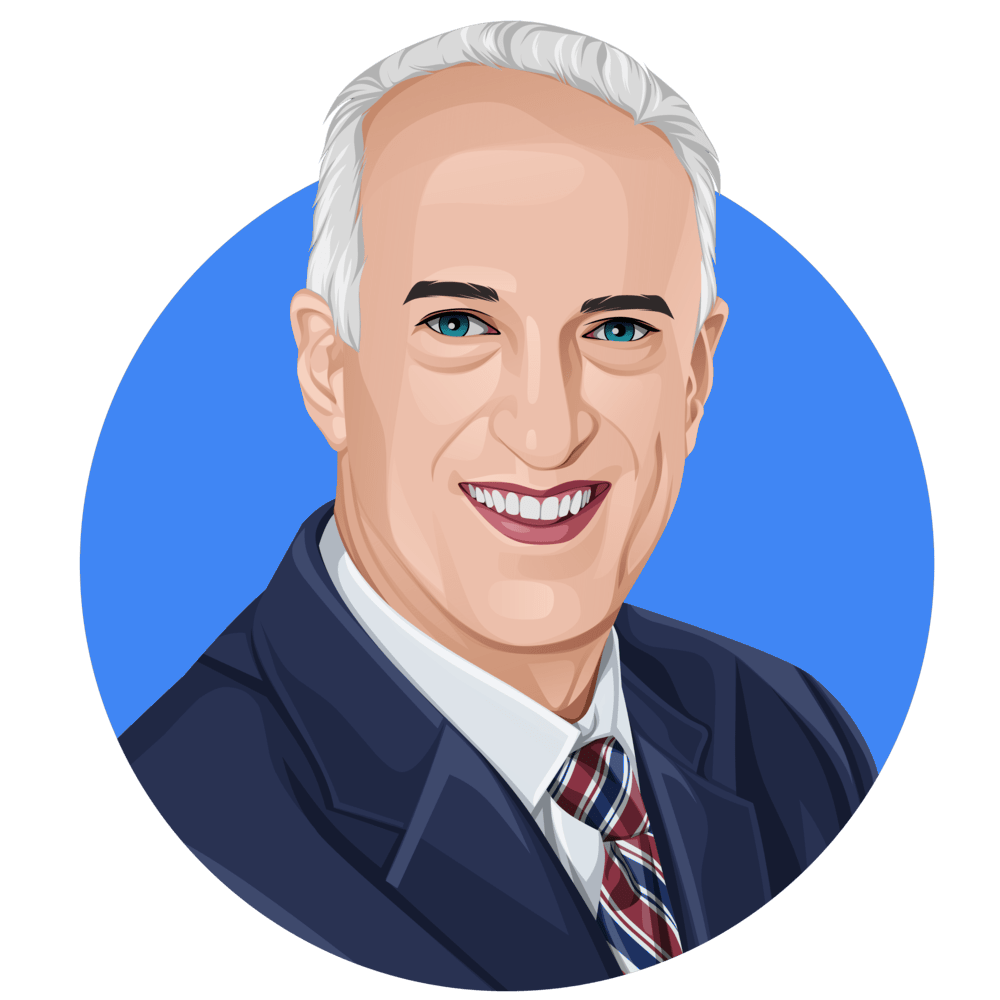

“Do you even study, bro?”
Nah, but I used to. On December 12, 2020, I left Chicago with a bachelor’s degree in Business & Economics.
“Do you even study, bro?”
Nah, but I used to. On December 12, 2020, I left Chicago with a bachelor’s degree in Business & Economics.



Awards & Stuff
The highest level of distinction with which an academic degree can be earned.
Issued: December, 2020
An annual honor bestowed each year to one male and one female from the graduating class, recognizing extraordinary leadership, dedicated service, superior academic performance, and embodiment of the University’s mission of living lives of significance and service.
Issued: December, 2020
An academic award recognizing the level of highest scholarship demonstrated by students.
Issued: Fall ’18, spring ’18, fall ’19, spring ’19, fall ’20 and spring ’20.
A writing award recognizing exemplary first-year student writing. Read my award-winning essay here!
Issued: April, 2018
Courses & Grades
By networking and learning from American industry professionals whilst simultaneously working remotely, I maximized my academic experience and brought with me both practical and theoretical knowledge of true relevance to my everyday professional life.
Below is the complete list of all courses taken as well as my takeaways and grades from each. To download the official transcript, click the cap.
Courses & Grades
By networking and learning from American industry professionals whilst simultaneously working remotely, I maximized my academic experience and brought with me both practical and theoretical knowledge of true relevance to my everyday professional life.
Below is the complete list of all courses taken as well as my takeaways and grades from each. To download the official transcript, click the cap.
Major Courses
Cumulative major GPA: 4.0
Addressed the principles of management and leadership along with their historical underpinnings, including managerial (i.e. planning, organizing, leading, and controlling) and leader (i.e. process, influence, context, attainment, shared experience) function and responsibility; effective and ethical manager and leader characteristics.
A study of generally accepted accounting principles and techniques for measurement and reporting of financial information in a balance sheet, income statement, and statement of cash flows. It includes an introduction to analysis and interpretation of financial data for decision-making purposes.
A study of managerial accounting concepts relevant to decision-making. Topics include cost accounting systems, the nature of costs, standard costs, and budgeting.
Covered applied statistical analysis. Descriptive, correlational, and inferential statistics; concepts of population, sample, sampling distribution; elements of probability; parameters of discrete distributions; hypothesis testing: analysis of proportions, means, and variance; linear regression.
Covered accounting statements, security markets, interest rates, taxes, risk analysis, time value of money, and the basics of security valuation. It includes how financial managers can help maximize their firm’s values by improving decisions in such areas as capital budgeting, choice of capital structure, and working capital management.
An aggregate and analytical view of economic analysis focusing on national income, employment, the price level, and economic growth. The theory of income determination, fiscal policy, monetary policy, and the international economy. Current issues and policies in macroeconomics including studies on labor force and job structure. Historical review and development of economic doctrines.
Development of the fundamental analytical tools of microeconomics analysis. Presentation of the concepts of the market, consumer behavior, and the behavior of the firm. The theory of production and cost, market structures, and distribution theory. Current issues and policies related to exchange and resource allocation, decisions on choice, and income distribution in markets. Historical perspectives on income distribution and industry structure.
Covered the important problems and topics in the area of business and professional ethics, e.g., job discrimination, corporate responsibility, environmental obligations, professional codes of ethics, power, and accountability.
Covered public relations and corporate communications strategies, including topics such as agency management, crisis strategies, personnel strategies, branding, and ethics. Analysis and writing of print, electronic, and oral messages to achieve organizational objectives i.e., writing backgrounders, boiler plates, fact sheets, press releases, speeches, newsletters, brochures, feature stories, annual reports, and intro bytes.
Covered the application of management concepts and techniques to the small firm. Special attention was given to the particular nature, opportunities, needs, and problems of small manufacturing, wholesale, retail, and service firms. Topics included the role/skills of the entrepreneur, the impact of small firms on the economy; intrapreneurship in larger firms, evaluation of business ideas and target markets; issues and methods of starting a small firm; risk and venture management for small firms, and venture financing.
Covered the nonprofit sector as it relates to both the for-profit business and government sectors. Emphasis will be on the history, purpose, and theories of the sector; the legal and regulatory environment; efforts to improve ethics and accountability; the sector’s economics and funding environment; trends in evaluation and outcome measurement; and general management problems and principles.
Major Courses
Cumulative major GPA: 4.0
Addressed the significance of both visible and invisible diversity and the need to understand and manage it as well as how to identify, analyze manage and positively utilize conflict.
Covered current theory and practice as it applies to the management of human resources within organizations. Specific focus was given to the effects of organizational mission and culture on human resource management. The processes of recruitment and selection, training and development, performance evaluation, compensation and motivation, and legal influences were examined.
Covered principles and theories about individuals and groups at work, motivation and interactive drives and processes for satisfying needs, organization strategies for effectively utilizing people and creating the environment to achieve goals of people and companies.
Synthesized the various disciplines of management and address the overall determination of strategic direction for the business organization.
Covered the theoretical underpinning of team development and the interplay of group interactions inherent in organizational settings.
Covered ERP software (e.g. SAP and Oracle) applying the study of Operations Management. Included materials management, production planning, logistics scheduling, execution, order management, quality management and linear programming.
Emphasized the importance of communicating effectively and ethically in the workplace, covering multiple modes of communication; written, oral, and, non-verbal by practicing strategies for professional presentation methods and business writing.
Introduction to database design, management as well as information collection and retrieval.
A practical, managerial approach to managing the marketing process was given, covering the steps in the marketing process, including market research, segmentation, targeting, positioning and “the four P’s” along with concepts of customer value and satisfaction, competitive analysis, brand strategy, consumer behavior, advertising, and the impact of the Internet on marketing strategy and implementation.
Covered the theory and practice of public speaking. Topics include types of speeches, types and uses of source material, organization, performance, and speech criticism.
Covered intensive writing, research and presentation, fostering effective written communication, critical thinking and problem-solving.
Non-Major Courses
Cumulative GPA: 3.86
Covered the methodology and major content areas of psychology.
Study of the common features and distinctive motifs that characterize some of the main religious traditions Hinduism, Buddhism, Islam, and others. Emphasized the development of a methodology for reading and interpreting the world’s scriptures as well as cultural aspects of religion.
Covered the history and theology of the biblical narrative as it informs Christian faith today.
Major Courses
Cumulative GPA: 3.86
Covered the art produced in North, Central and South America. Included an in-depth analysis of indigenous religious traditions and social structures and the way they have shaped the visual arts in the Americas. The art studied varied from what was produced before contact with European civilization and after conquest and colonization.
Covered the methodology of analyzing patterns of human relationships in complex societies — both in the United States and beyond
The future of our planet’s health will depend on professionals who can assess and solve our most pressing environmental problems. Environmental science teached me about our natural world and how to live sustainably within it.

Words from a wise guy
“Philip is, flat-out, one of the best students to ever take my classes at North Park University.
He is naturally smart and congenial. He has bolstered his natural intelligence by reading everything and discussing topics form business and finance to politics to the cultural nuances of living and working in Sweden and life in Chicago. He has an excellent grasp of business in general and he really shines in the area of wealth management.
Equal to his business and financial acumen is his personal style. I used the word congenial. He is kind, engaging, helpful, and puts everyone at ease. This is a great attribute for someone as intellectually gifted as Philip. I personally love his subtle humor.
Philip has my highest endorsement. I anticipate Philip will have an exceptional career and achieve at the highest level.”
Mark Gavoor
Associate Professor of Operations Management at North Park University & former Director at the Colgate-Palmolive Company
Words from a wise guy
“Philip is, flat-out, one of the best students to ever take my classes at North Park University.
He is naturally smart and congenial. He has bolstered his natural intelligence by reading everything and discussing topics form business and finance to politics to the cultural nuances of living and working in Sweden and life in Chicago. He has an excellent grasp of business in general and he really shines in the area of wealth management.
Equal to his business and financial acumen is his personal style. I used the word congenial. He is kind, engaging, helpful, and puts everyone at ease. This is a great attribute for someone as intellectually gifted as Philip. I personally love his subtle humor.
Philip has my highest endorsement. I anticipate Philip will have an exceptional career and achieve at the highest level.”
Mark Gavoor
Associate Professor of Operations Management at North Park University & former Director at the Colgate-Palmolive Company


Want to know more?
Explore my work by visiting this page – or learn more about me by completing my 24-year-long journey in less than a minute.
Get in touch with me by talking to a bot version of myself or e-mail me at hej(at)philipsyren.se.

Want to know more?
Explore my work by visiting this page – or learn more about me by completing my 24-year-long journey in less than a minute.
Get in touch with me by talking to a bot version of myself or e-mail me at hej(at)philipsyren.se.

